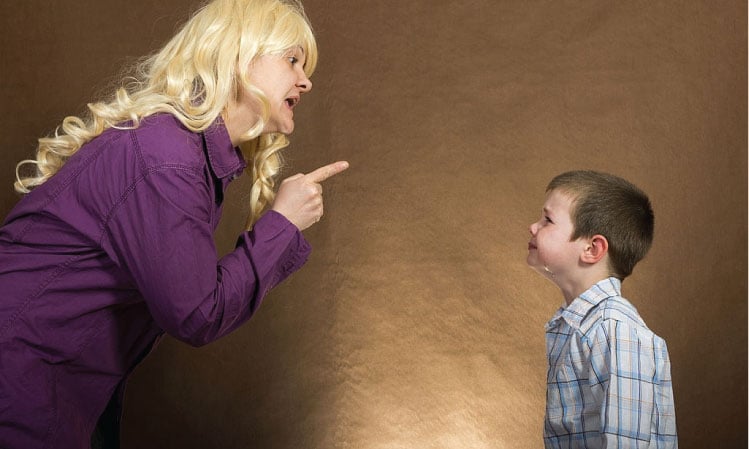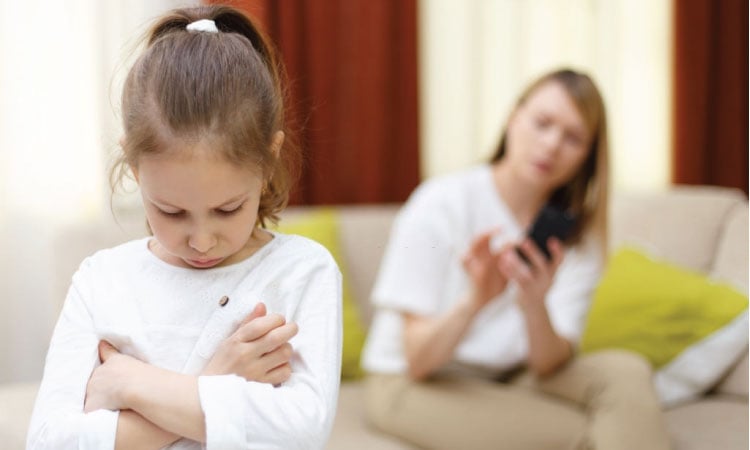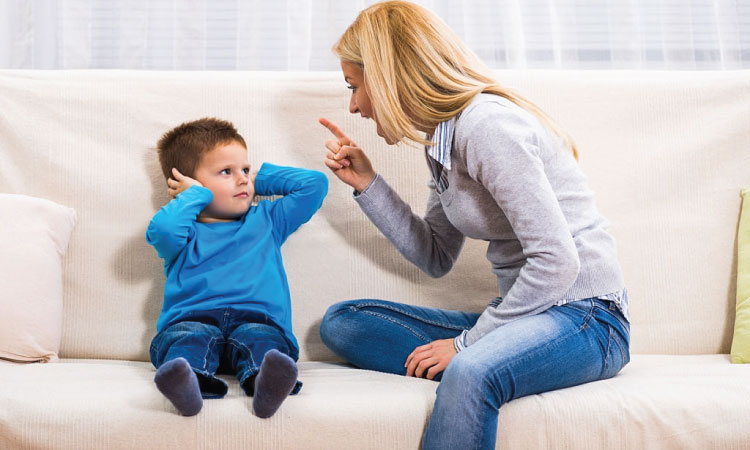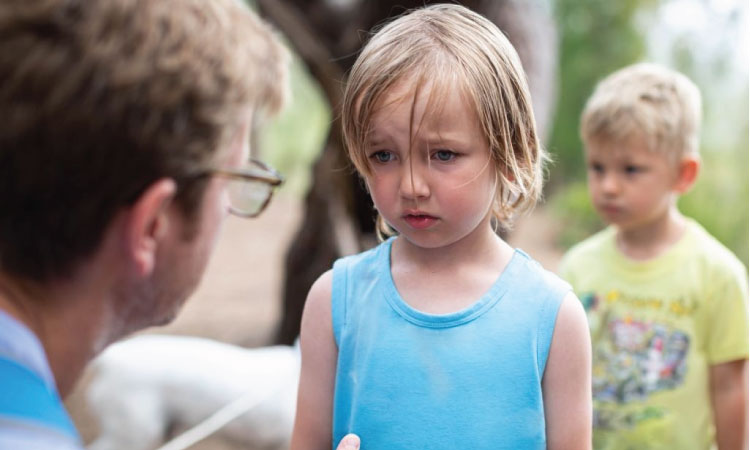Everything you say to a child has its impact – you may notice or not. So are you a parent who says encouraging and positive words to your child? Have you ever said some of the worst things you can say to your child? Guilty? Well.
Believe it or not, your words do have a lot of impact on your child’s psychology and behavior. During the early years when they start learning about everything, they always look up to their parents for support and guidance. Studies have proven that for kids, their parents’ words become the ultimatum and they believe whatever the parents say.
This is why you should always be aware of your words because saying something you shouldn’t have can have a huge negative effect on your child.
10 Worst Things You Can Say To Your Child
You might not intentionally say those words. But, once said, the damage will be done and it might prove to be very difficult to reverse the situation.
For this reason, as parents, you should know about the worst things you can say to your child and how saying them will affect their innocent minds and their behavior.
1. “You should consider your sibling as a role model”
Most times, parents usually compare their kids with their older siblings, asking them why they can’t behave like their elder brother or sister. Even though many parents say this unknowingly, this one statement has a huge negative impact on the kids.
When you are comparing your child with their siblings, you are drawing a line of differences between them. You come out as partial, and even if your kid is very young, they can easily catch on to the feelings of disappointment in this statement.
Impact: If you constantly compare them with your other kids, your child will feel unwanted and start taking their failures seriously, but in a bad way. They will try to copy their siblings and make further mistakes. Moreover, with these words, you will hurt your child to such an extent that they will stop displaying their own emotions and actions.
You might not see the impact initially. But, as your kid will grow up, you will start to notice the changes. Jealousy and the feeling of being incompetent will cloud your child’s mind, thereby throwing them in a depressed state.
2. “Because I told so”

Yes, as a parent, you will always think about the best for your child. But, that doesn’t mean you can establish a supreme control over their behavior. The mere statement, “Because I told so” delineates that whatever your child does, it’s wrong and hence, he or she should always follow your words.
To some extent this is helpful because as a kid of four or five years, they wouldn’t know what’s good for them and what’s not. But, if you discourage them every time they do something against your wish, it will have a negative impact on their mind.
Impact: “Because I told so” is one of the worst things you can say to your child, especially during their growing age. This means you are not happy with their actions, and indirectly, you will discourage them.
Be it in studies or in any other activity, your statement will portray your unwillingness to agree to whatever your kid is doing. This way they wouldn’t feel comfortable in speaking their minds out, and will always blindly do everything you will tell.
3. “You can’t eat that”
Children have a habit of eating most things that seem to be appealing for them like nutella, ice creams, candies, chocolates, and others. And, most times, parents find it difficult to make them eat healthy foods like greens, milk, cereals, and others.
Yes it’s true that since your kid is in a growing period, they will need more healthy foods so that they can get all the required nutrients. But, if they like to eat junkies or sweets, stating that they can’t eat the food will only make them sad.
“You can’t eat that” is the most psychologically damaging thing you can say to a child. To avoid the same, set a limit on the intake of sweets and junk food and allow them to exercise choice some times.
Impact: When you are stopping them from eating foods they like and forcing them to eat those ingredients that they hate the most, you are instilling anger in your kid. He or she might listen to you at the beginning. But, sooner, they will start throwing tantrums, both at home and in the public. In fact, your refusal to give them their favorite snacks or candy will force them to steal it or sneakily eat them.
4. “Unless you do what is being told, I will leave/ won’t talk to you”
One of the worst things you can say to your child is threaten them with your words and telling them that if they do not follow or obey your words, you will either leave them or wouldn’t talk to them.
Children, especially those of age three to five years, greatly depend on their parents. Similarly, for your kid, you are the most precious person without whom they can’t imagine staying away. So, threatening them about you leaving the house just to make them do what they have been instructed is not at all a healthy action for their mind and emotions.
Impact: Most times, it has been observed that parents who usually make such statements put their child through childhood trauma. Since they can’t stay away from you, they will do everything that are being told, even at the expense of their happiness and health. This submission over fear will hamper their future relationships as they get older.
5. “I can’t, leave me alone now”

It’s common that every person will feel the stress at some point of time. You too might be going through bad times, and there is nothing wrong to be stressed.
However, it is definitely wrong to take out your frustration on your child, especially when they need you. For example, let’s say your kid faced a bully in his school and after returning back, he wanted to tell you everything. But, you are so stressed due to work related issues that instead of hearing him out, you tell him to leave you alone. Now, this is an action which will show your kid that you are least concerned with his problems.
If this often happens, your child could seek out support from outside. Which could open a plethora of issues if driven out of hand.
Impact: Telling your kid to leave you alone is equivalent to saying hurtful things to children. You are not only showing an ignorant behavior but also turning deaf to your kid’s problems. This will impact their psychology in a negative manner, forcing them to believe that they don’t matter to you.
6. “There is nothing to cry about”
Many parents easily get frustrated on seeing their kids crying over smallest things, be it a broken pencil or not having his favorite breakfast. And out of their frustration, they instruct their kids not to cry because it doesn’t look good when they cry. If you are thinking that by saying such statement, you are making them emotionally strong, you are extremely wrong.
Impact: Saying that they don’t have to cry or the incident is nothing of importance that your kid should waste his tears is one of the worst things you can say to your child.
Children are always emotional and that’s why they easily express their sadness and grief through tears. That is their mode of communication, because most of the times they don’t have words to express their sadness.
Stopping them will lead to the accumulation of silent anger and agony which will ultimately result in childhood trauma.
7. “Let me do this for you”

As a parent, you have every right to help your kid in tasks where he or she is stuck. Yet, helping doesn’t mean that you will do the work by yourself and let your child take the credit for the same.
At some instances, when your child is unable to do the task after repeated tries, it’s good to interfere and do the work for them. However, this shouldn’t be done every time, especially during their growing period.
Impact: The moment you tell them to let you do the work, they wouldn’t show interest in learning how you are completing the task. This way, they will become more dependent on you for almost everything, and hence, their cognitive development will stagger.
They wouldn’t show any enthusiasm in trying again or learning new things because it will be imprinted on their mind that if something goes wrong, you will do the task for them.
8. “No, you will make a mess out of everything”
Labeling a child good orbad at an early age is not acceptable as it puts lot of pressure on their mind. Children make messes and there is nothing to get angry about it. If your kid is making a mess at the dining table while eating or messing up the walls with crayons, getting angry on their behavior will scare them and they will start becoming aloof.
Impact: “No, you will make a mess out of everything” means that you are discouraging your child and scrutinizing them of their actions. As a parent, you need to understand that children can’t do everything perfectly like an adult.
And hence, rather than scolding them and embarrassing them, you can talk with them and make them understand.
9. “Why can’t you be like other kids?”
One of the worst things you can say to your child is comparing them with other kids. Setting examples for your child is good and definitely very inspiring. But, this should be done in a healthy way where no comparison or biased thought is involved. Once you start comparing your kid with others, you draw a divider between you and your child.
Impact: Comparison can put your child’s mental health at risk. They will feel threatened by other kids and will start distancing themselves from society. Since your kid will always take your words seriously, he or she will try everything to please you, including imbibing others’ bad habits.
10. “You are just like your ____”

Your child is not like any other person whom you hate the most or are angry with. Your kid is his own person. His behavior is the result of your nurture. And if he makes a mistake, then there is nothing wrong because we all make mistakes. So, telling them that they are just like someone whom you dislike is a way of expressing your hatred.
Impact: Your child might not understand the intensity of these words initially. But, as they will grow and become older, they will feel disappointed in themselves, and their confidence will falter.
Conclusion
There are several worst things you can say to your child. We have mentioned the ten most hurtful sayings which cause anxiety, depression, childhood trauma, and many other such changes.
Children are very delicate and hence, when you deal with them, you have to be patient and understanding. Before saying anything out of anger and frustration, go over the words and try to analyze whether your kid deserves such harsh words or not.
You might not realize the impact your words will make at the present time. But, you will surely see the changes in their behavior as they grow up.

